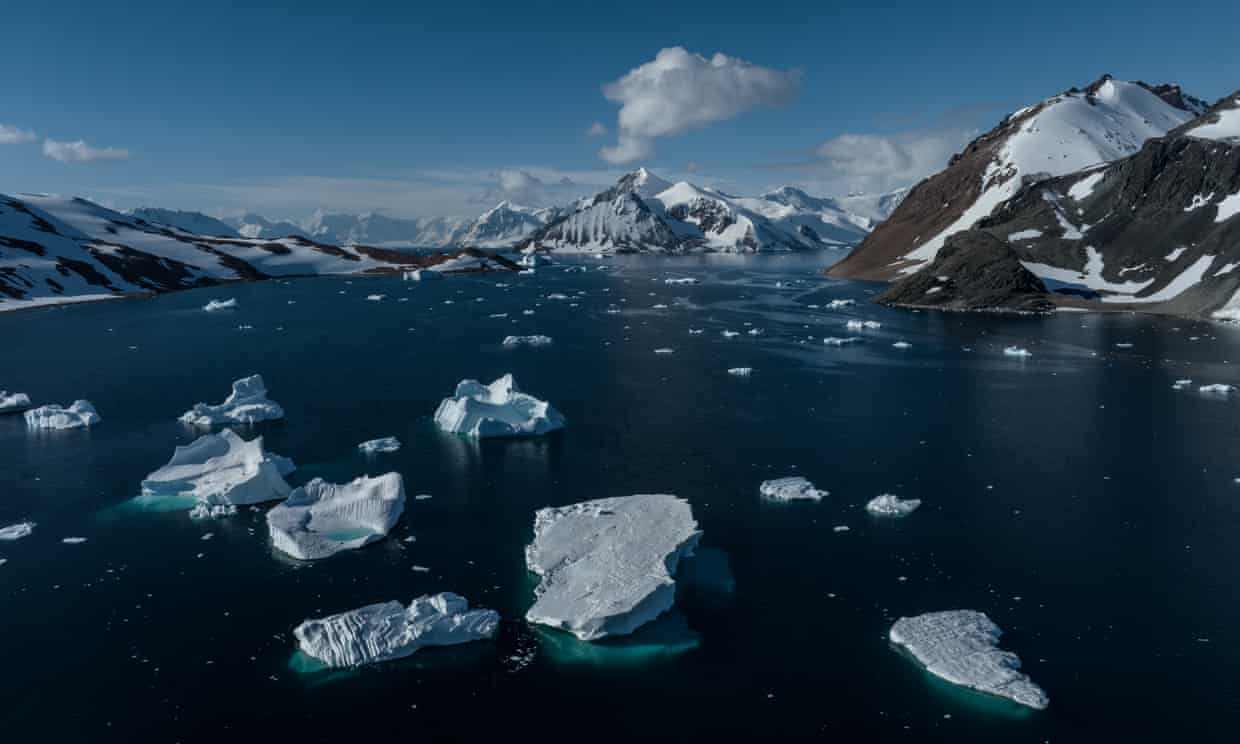
Accelerated ice melt in west Antarctica is inevitable for the rest of the century no matter how much carbon emissions are cut, research indicates. The implications for sea level rise are “dire”, scientists say, and mean some coastal cities may have to be abandoned.
The ice sheet of west Antarctica would push up the oceans by 5 metres if lost completely. Previous studies have suggested it is doomed to collapse over the course of centuries, but the new study shows that even drastic emissions cuts in the coming decades will not slow the melting.
Losing the floating ice shelves means the glacial ice sheets on land are freed to slide more rapidly into the ocean. Many millions of people live in coastal cities that are vulnerable to sea level rise, from New York to Mumbai to Shanghai, and more than a third of the global population lives within 62 miles (100km) of the coast.
The climate crisis is driving sea level rise by the melting of ice sheets and glaciers and the thermal expansion of sea water. The biggest uncertainty in future sea level rise is what will happen in Antarctica, the scientists say, making planning to adapt to the rise very hard. Researchers said translation of the new findings on ice melting into specific estimates of sea level rise was urgently needed.
“Our study is not great news – we may have lost control of west Antarctic ice shelf melting over the 21st century,” said Dr Kaitlin Naughten, at the British Antarctic Survey, who led the work. “It is one impact of climate change that we are probably just going to have to adapt to, and very likely this means some coastal communities will either have to build [defences] or be abandoned.”
Naughten said: “We already have a refugee crisis in the world, and [sea level rise] will only make it worse. How are we going to deal with the displacement of millions of people, or possibly over a billion people, depending on the amount of sea level rise?”
Dr Taimoor Sohail, at the University of New South Wales, in Australia, and not part of the study, said: “The collapse of the west Antarctic ice sheet is a worrying climate tipping point. This assessment suggests that accelerated melting of ice shelves is locked in. The implications for sea-level rise are dire.”
Prof Alberto Naveira Garabato, at the University of Southampton, UK, said: “This is a sobering piece of research. However, it should also serve as a wake-up call. We can still save the [east] Antarctic ice sheet, containing about 10 times as many metres of sea level rise, if we learn from our past inaction and start reducing greenhouse gas emissions now.”